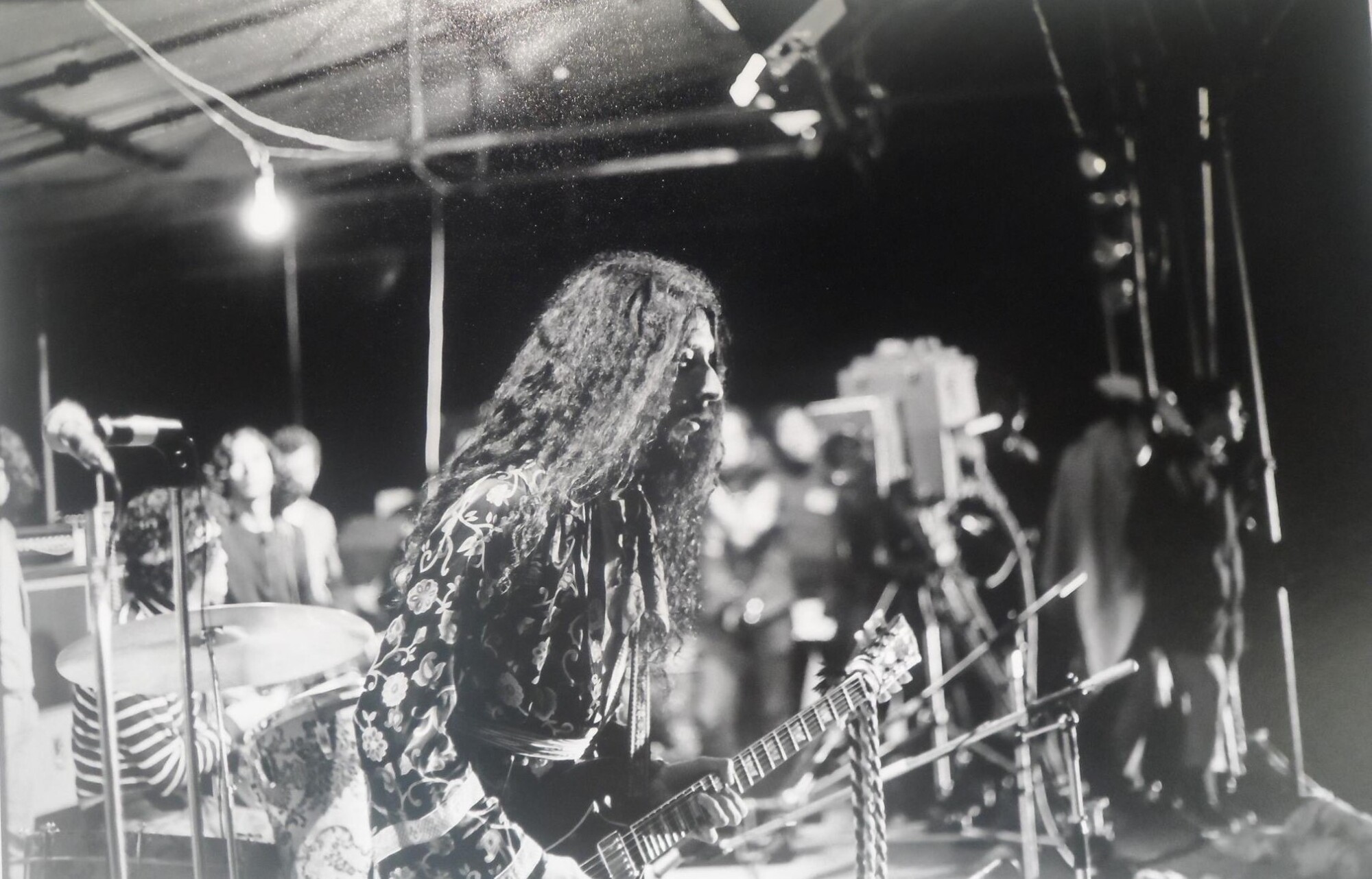Los Dug Dug’s | Interview | Mexican Underground Heavy Rock Freaks of the 70s
Los Dug Dug’s are the mystical outlaws of Mexican rock, the kind who’d find a way to spread their raw riffs no matter what stood in their way.
Armando Nava piloted the group from Durango to the sprawling chaos of Mexico City, and later to Tijuana, all in search of a stage that could handle their ambition. They cut their teeth playing Beatles covers in smoke-filled bars, but eventually, they tore up the songbook and decided to write their own myth. Their 1971 debut album is a wild-eyed spirit, blending freak-out psych rock with a defiant, echo-drenched howl that still reverberates through underground music circles today.
Nava’s vision was stubborn—insisting that Los Dug Dug’s weren’t just making music for Mexico but trying to carve out a place for Mexican rock on the world stage. And while RCA might’ve tried to tame their raw energy, Dug Dug’s pushed back, producing their own records, distorting guitars, and cranking up amps until the walls shook. When the infamous Avándaro Festival came around, they were the band that kicked off this legendary event on September 11, 1971.
Their second album, ‘Smog,’ almost never came out in Spanish; Nava locked himself away, turning those English verses inside out, only to find that his own language gave the songs a twisted new power. Even when the world wasn’t paying attention, Los Dug Dug’s kept pounding away, like a storm waiting to hit. For American audiences, their music was like a hidden goldmine—treasured by those who dug deep enough to uncover it.
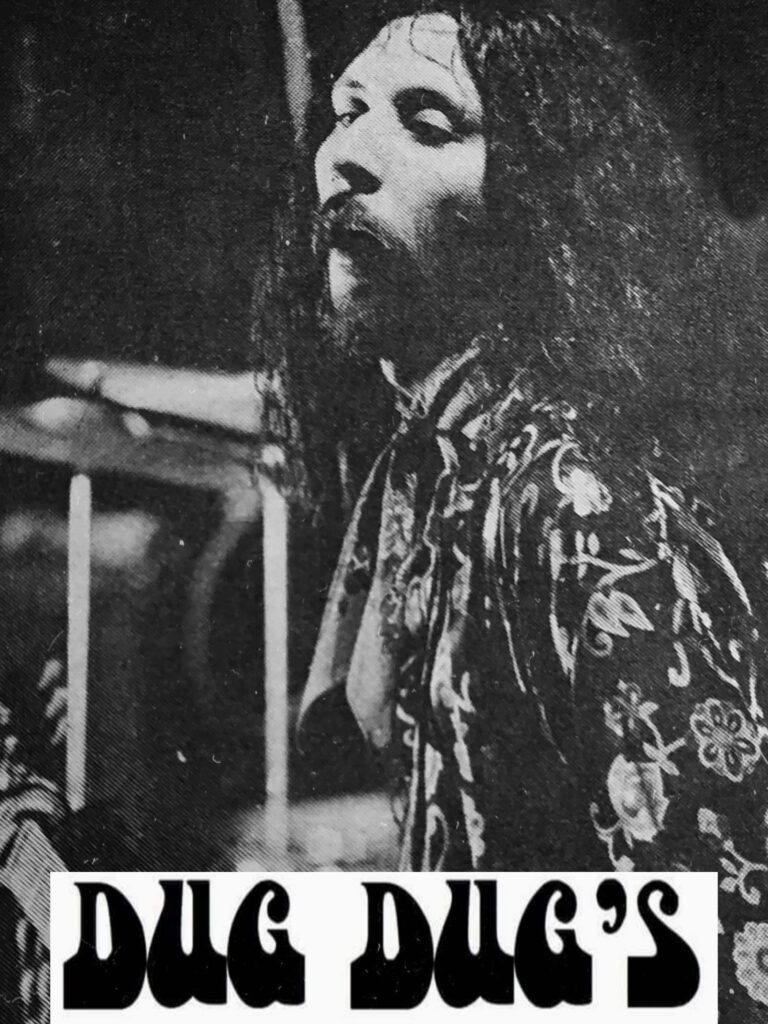
“I’ll keep taking my music everywhere I can until my body can support it.”
Are you excited to be playing live again?
Armando Nava: More than excited to be playing live, I feel that the dream I had when I started making music—taking it beyond Mexico’s borders—is finally coming true. I always believed my music was meant to be heard around the world, and that was my goal from the beginning.
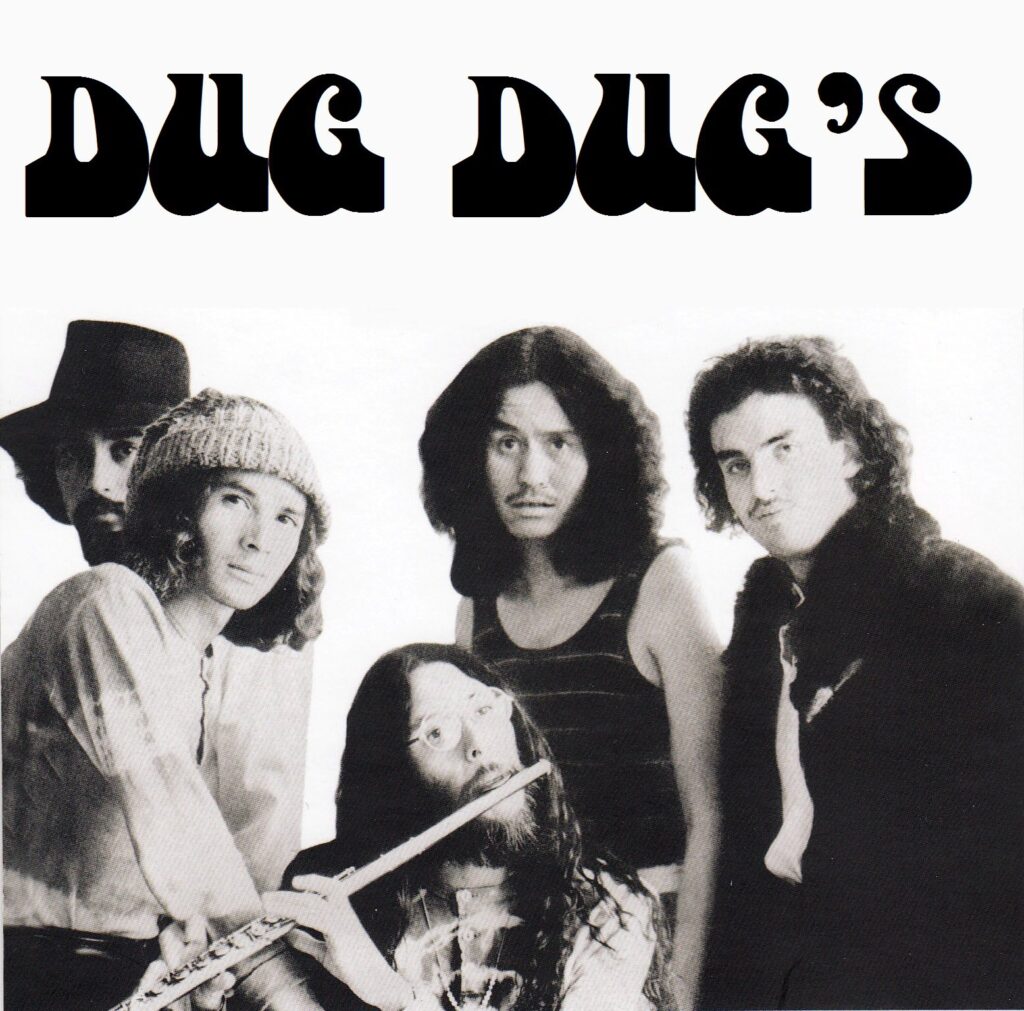
So playing live means bringing your music to a much wider audience than before?
What do I hope for? To reach younger people so they discover that there are more music options around the world. But, more than anything, I want Americans to hear my music. Why? Because when performing in the USA, I realized there’s a large audience that has wanted to hear Los Dug Dug’s music for over 40 years.
Tell us about the material you play live.
We’re playing music from the records we recorded in the late ’60s and ’70s. It’s really nice that people who come to see us want to hear the music from our old albums.
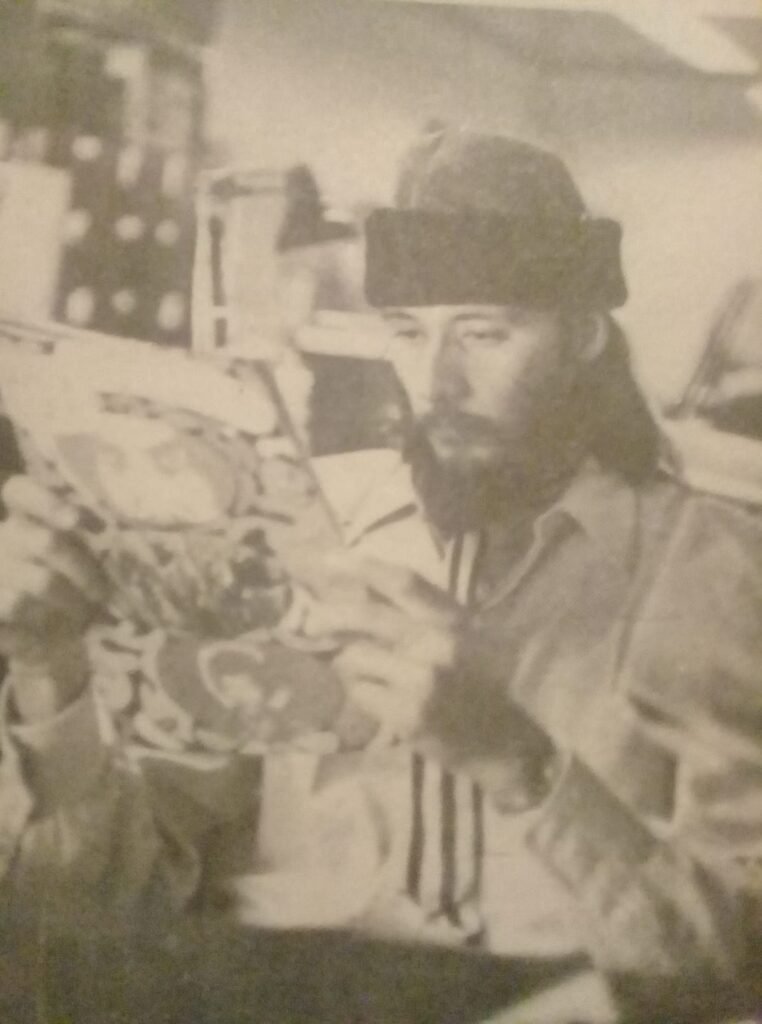
Can you elaborate on the formation of Los Dug Dug’s?
I was first invited to play with a rock ‘n’ roll band called Xippos Rock in Durango City, Mexico, where I was born and went to school. They told me I would play harmony guitar (second guitar), so I did. After a year or two, my parents moved to Tijuana, Mexico. I stayed there for about a year and then returned to Durango for a vacation. On the way back to Tijuana, during school vacations, I decided to bring the Xippos Rock band to Tijuana in a pickup truck with a broken engine. My mother fixed the engine and hired a driver to take us all the way to Tijuana. We played cover songs in Spanish in almost every city along the Pacific road. We stopped in Obregon, Sonora, Mexico, and that’s when I decided to change the band’s name to Los Dug Dug’s, a contraction of “Durango Durango.” By the way, Durango is both the name of a city and a state in Mexico.
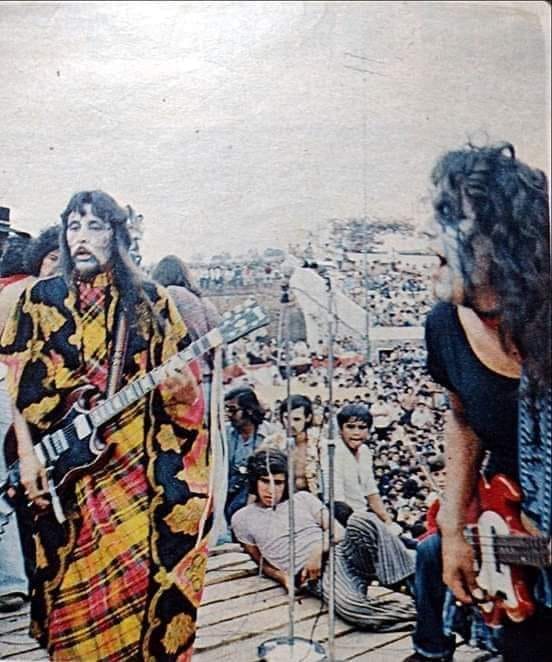
What’s the story behind your debut album?
First of all, two of the songs (‘World of Love’ and ‘Eclipse’) from our debut album were recorded at Allegro Sound Studio in New York in 1968. To make it clear, those two songs were recorded again in Mexico City under the RCA label during 1969 and 1970 for the debut album. It took a long time to finish this vinyl record. When the record was set for release, there was a rock ‘n’ roll festival called Avándaro, the first mass festival ever held in Mexico. The RCA company held back the debut album release until after the festival, even though the album was finished. We were part of that festival, and Los Dug Dug’s were the ones who opened the Avándaro Festival on September 11, 1971. The album was recorded at RCA; I never counted the hours it took to make the album, but as far as I remember, it took days—or I should say nights—to complete.
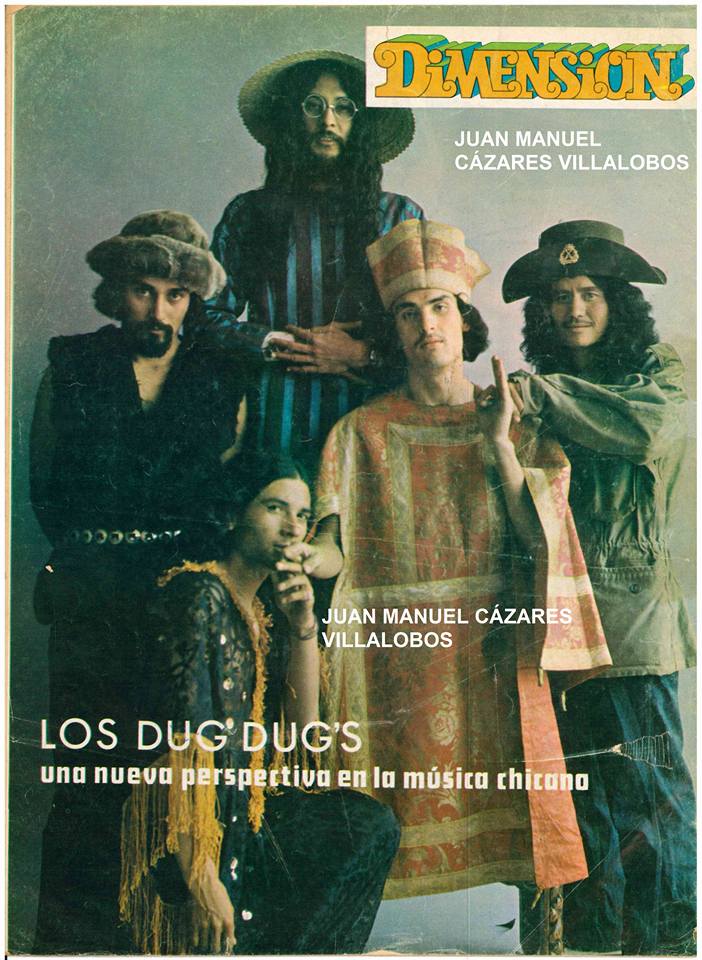
I remember we had to beg the engineer to back us up with nighttime recordings since the studio was booked with other artists during the day. Honestly, it took months to make that album. The equipment we used? Our own: Octaplus Slingerland 24″ and 22″ kick bass, Acoustic Bass Amp, Fender Twin Reverb 135-watt Silverface for lead guitar, 100-watt Acoustic Amp Blueface for harmony guitar, Hammond Organ owned by RCA, Fender Stratocaster, Gibson SG guitar, Hofner Bass, Boss Distortion, Maestro Phaser, and for vocal effects, we used an analog Maestro Echoplex Echo Chamber delay. I was the producer of all Dug Dug’s albums.
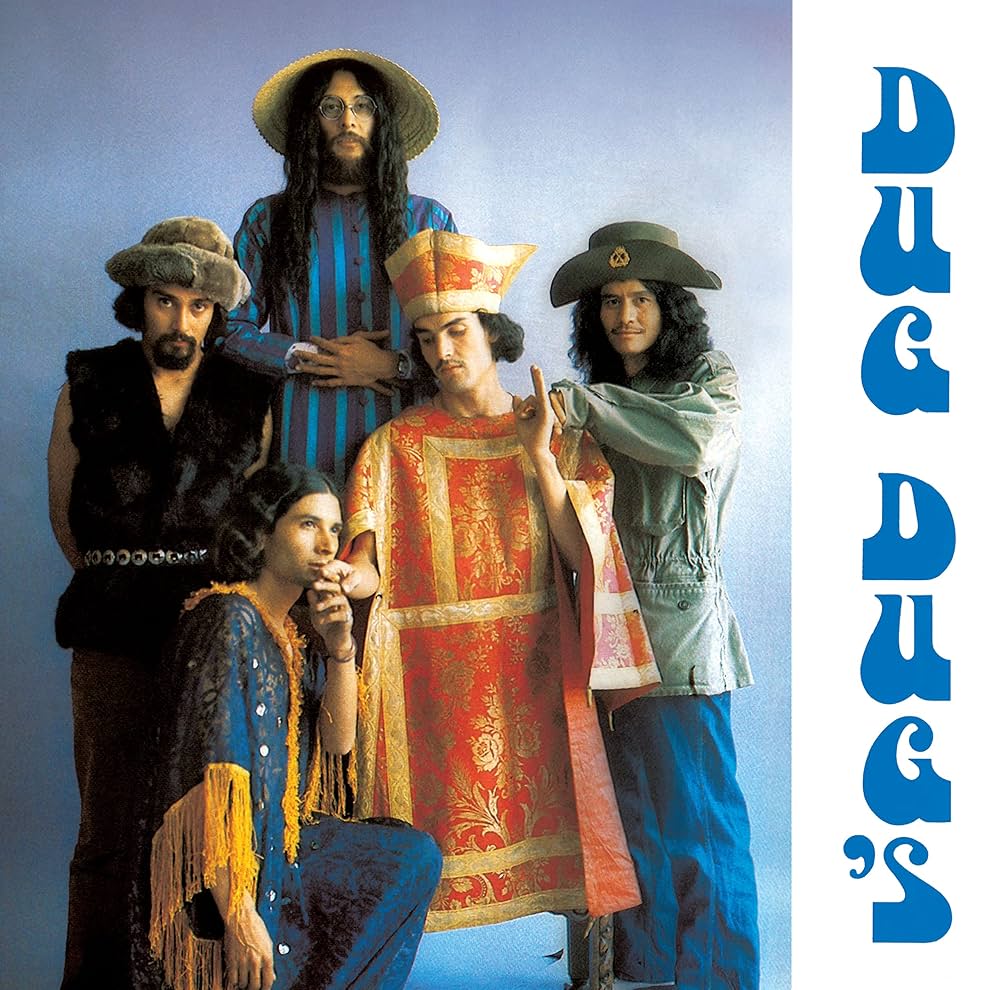
How about ‘Smog’? What’s the story behind your second album?
This record was originally going to be recorded in English, but in the middle of recording the vocals, I decided to stop and lock myself away to work on the Spanish versions. It took about 15 days to accomplish this challenge before returning to the studio. At first, it was strange to hear the songs in Spanish, but to my surprise, they sounded awesome! We just kept recording the remaining songs and finished the ‘Smog’ album on 8 tracks. I never thought this album would receive so many compliments.
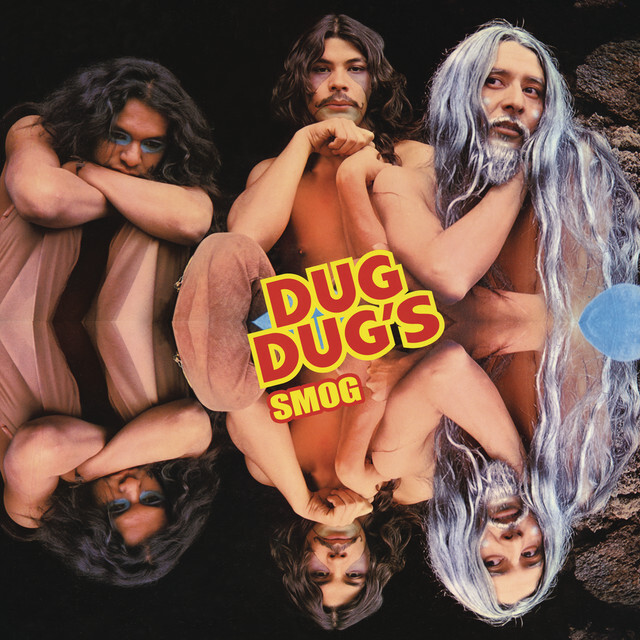
Looking back, what was the highlight of your time in the band?
Thinking back, it was hard to keep going—making music and constantly searching for places to perform in Mexico. But I kept believing that it was worth the effort, even though we had hardly any money to live on. We accomplished many things as a band, but the highlight for me was when I became the producer of my own music under RCA and decided to transform Los Dug Dug’s into a power trio.
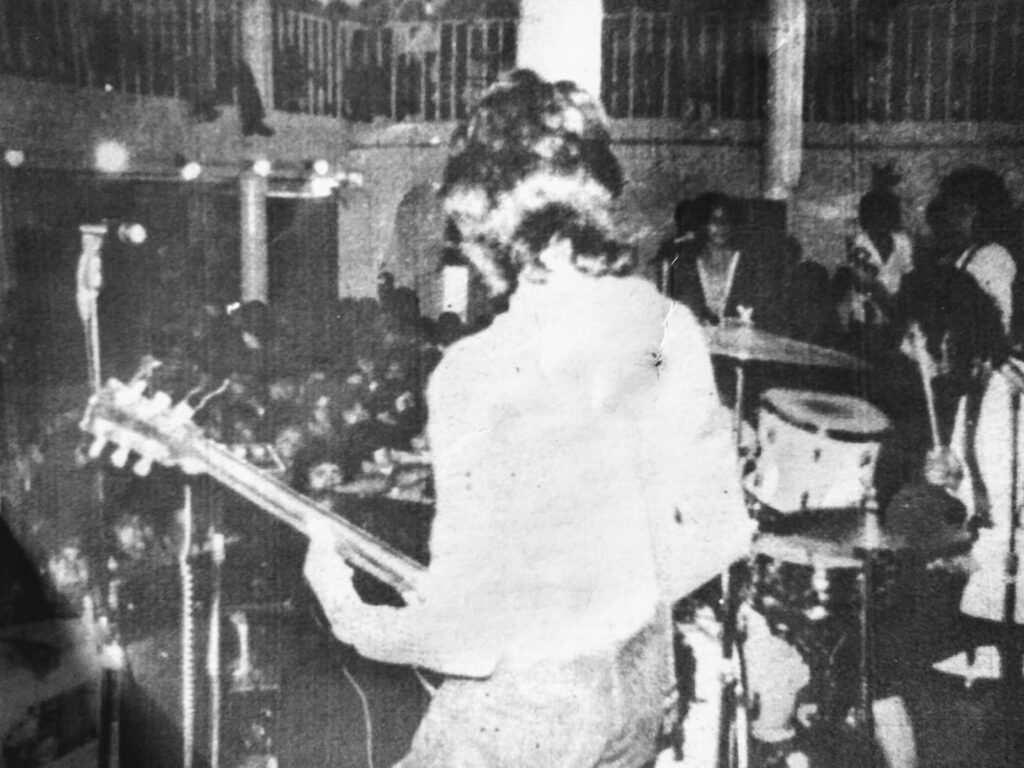
Thank you for your time. The last word is yours.
To be a musician, I guess, isn’t easy in any country. Like many musicians, we struggled—and yes, we starved too. But now, I’m having fun taking my music wherever I can, and I’ll keep doing it as long as my body can handle it.
Klemen Breznikar
Headline photo: Los Dug Dug’s at Festival Avándaro 1971
Los Dug Dug’s Facebook / Instagram

